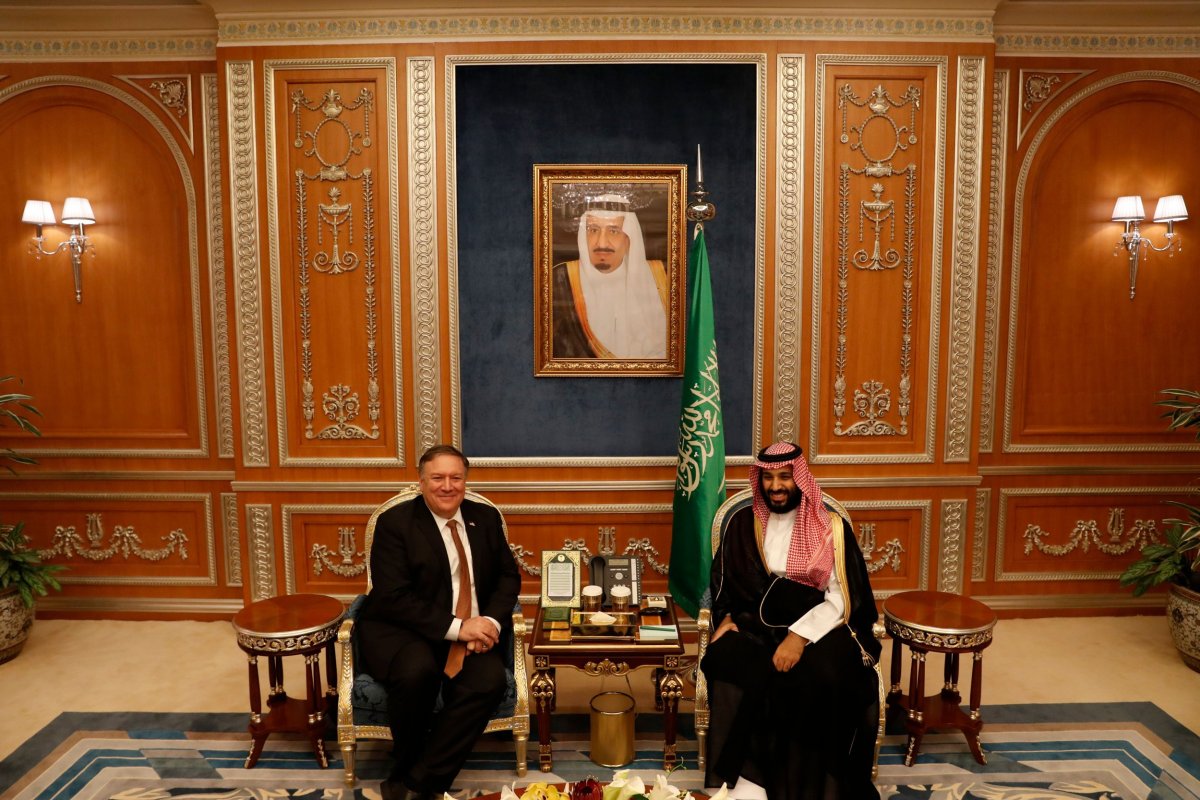The murder of Saudi journalist Jamal Khashoggi isn't the first atrocity committed by key U.S. ally Saudi Arabia. And Donald Trump isn't the first U.S. president to stand by and watch. America's red lines almost never apply to America's allies.
But this time could be different.
Khashoggi's murder was committed in broad daylight, in a Saudi diplomatic venue in another U.S. allied country. It was carried out by a special team flying in private jets known to be owned by the Saudi crown prince, including at least one "autopsy specialist" armed with his own bone saw, and followed up by a cleaning crew armed with buckets, scrub-brushes, and fresh paint.
This wasn't normal, even by Saudi standards.
Khashoggi was a mild, cautious journalist with close ties to the Saudi royals, who only recently emerged as a critic of the regime. A permanent legal resident of the United States who was friendly with Washington elites, the Washington Post columnist should have been untouchable. Going after him so brazenly could only be an attempt to intimidate all potential critics.
His murder has generated massive press coverage and public outrage. And there's been some blowback in the form of high-visibility CEOs pulling out of the Saudi crown prince's "Davos in the Desert" investment festival.
The Saudis now admit the murder, blaming it on a "rogue operation." They've even made a few show arrests. Still, putative Saudi ruler Crown Prince Mohammed bin Salman (known widely as MBS) is plainly counting on Trump—and especially his BFF Jared Kushner—to do what they've always done in response to Saudi abuses: nothing.
After all, the United States has done nothing to challenge any of the prince's earlier stunts: launching a pointless economic blockade against Qatar; detaining the Lebanese prime minister; arresting over 200 Saudi princes and business leaders and extorting much of their private fortunes; and freezing trade relations with Canada over a mild human rights complaint.
Most of all, there's Saudi Arabia's devastating, one-sided war on Yemen.
Backed by U.S. military and political assistance, the Saudi and United Arab Emirates (UAE)-led assault has been overwhelmingly responsible for the more than 16,000 civilians killed and the tens of thousands more civilians injured in the Arab world's poorest country. Parents are still mourning the 40 children killed and 56 wounded last August in a U.S.-backed Saudi airstrike targeting a school bus.
Meanwhile, the Saudis are blockading Yemeni ports crucial for both commercial and humanitarian goods, causing thousands of cholera deaths and creating a massive famine that the U.N. calls the worst anywhere in the last 100 years.
In normal times, bad press like the Khashoggi crisis might make the prince a little jittery at the prospect of his U.S. military spigot being turned off. These days, the U.S. president accepts—and parrots—Saudi denials at face value.
The crown prince, Trump breezily accepted, "totally denied any knowledge of what took place in their Turkish consulate." He even dispatched Secretary of State Mike Pompeo for an obsequious photo op sharing smiles and a warm handshake with MBS in Riyadh.

Why stick with the Saudis? It comes down to Iran—and U.S. military contractor profits.
Trump's regional goal is still about building an anti-Iran coalition centered on Washington's key Middle East allies—Saudi Arabia, the UAE, and Israel. U.S. arms sales, and the direct U.S. military participation in the devastating Yemen war (like providing in-air refueling to Saudi and UAE bombers to extend their murderous reach), aim to challenge Iran, which provides limited support to the other side in Yemen's civil war. That's the first part.
The second part, as Trump himself admits, is that he wants to protect profits for U.S. corporations selling arms to the Saudis. Trump has specifically named Boeing, Lockheed-Martin, and Raytheon as companies whose bottom lines he seems to value more than the lives of Yemenis or journalists. (The New York Times calls Trump's oft-cited $110 billion figure for those deals "wildly inflated," and arms business expert William Hartung puts the actual number at around $14 billion.)
Whatever the exact amount, U.S. corporations—and the U.S. government backing them—are complicit in war crimes in a far-away war against civilians. And public opposition to that backing has been rising, even in Congress.
A few months ago, before Khashoggi, a Senate vote came close to ending U.S. participation in the Saudi war in Yemen, and a similar House vote is under consideration. As Rep. Jim McGovern (D-Mass) noted, "the actions of the Saudi-led coalition in Yemen are fast-approaching the level of crimes against humanity."
The gruesome, high-profile murder of Khashoggi could finally turn the tables on all that.
Already, the businesses pulling out of "Davos in the Desert" calculate that Saudi Arabia is bad for their brand. Even Trump's Treasury Secretary Steve Mnuchin, one of the last holdouts at the conference, announced he wouldn't participate. And Trump himself, while defending MBS, finally had to admit the Saudis have been lying about Khashoggi.
In one of Jamal Khashoggi's last pieces, he called on the Saudi crown prince to end the violence in Yemen. He didn't call out Donald Trump's and Jared Kushner's complicity in those crimes, but we must.
So maybe, just maybe, Khashoggi's death could help bring about accountability for all who are responsible for so much suffering—in Yemen as well as in the Saudi consulate in Istanbul—and get the Saudis' Washington spigot turned off for good.
Middle East expert Phyllis Bennis is a fellow at the Institute for Policy Studies. Her books include Understanding ISISand the New Global War on Terror.
The views expressed in this article are the author's own.
Uncommon Knowledge
Newsweek is committed to challenging conventional wisdom and finding connections in the search for common ground.
Newsweek is committed to challenging conventional wisdom and finding connections in the search for common ground.
About the writer
To read how Newsweek uses AI as a newsroom tool, Click here.








